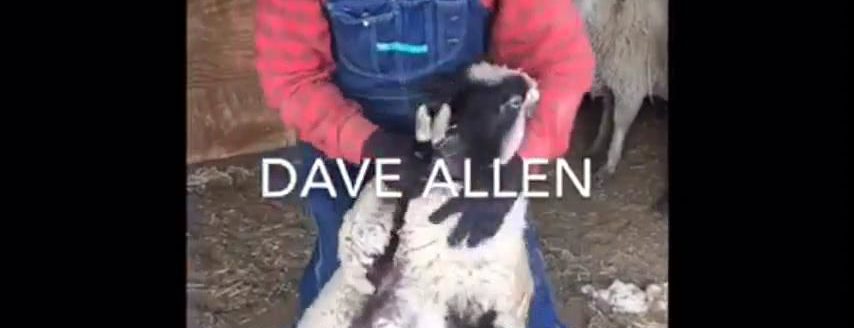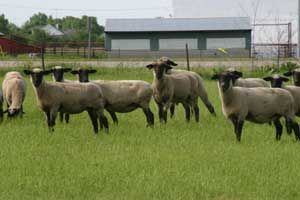Workshop series helps small ruminant producers
An upcoming series of workshops from the University of Arkansas System Division of Agriculture Cooperative Extension Service will help small ruminant producers identify a common parasite in sheep, goats and other animals, and determine the best course of treatment in a variety of circumstances.
The workshops will concentrate on the administration of FAMACHA, the name commonly associated with the Faffa Malan Chart, a diagnostic method for identifying the presence of Barber’s pole worm (Haemonchus contortus). The method was originally developed by researchers in South Africa.
Chelsey Kimbrough, Extension specialty livestock specialist, said the parasite is the No. 1 cause of most health issues in small ruminants, causing anemia, weight loss and death, among other maladies.
The workshops will also cover the process of a fecal egg count, in which participants examine the feces of ruminant animals to determine if the presence of parasitic eggs meets a treatment threshold, using the McMaster slide method. The technique allows producers to examine fecal samples under a microscope using specialized, two-chamber slides.
Each workshop begins at 1 p.m. and is projected to last three to four hours. The cost to attend a session is $55. Interested individuals can register at uaex.formstack.com/forms/famacha.
Workshops currently scheduled across Arkansas include:
March 12—Pauline Whitaker Arena, 1335 W. Knapp Drive, Fayetteville;
April 9—White County Extension Office, 2400 Old Searcy Landing Rd., Searcy;
April 14—Ozarka College-Ash Flat, 64 College Drive, Ash Flat;
April 21—Howard County EH House, 425 N. Second St., Nashville; and
April 23—U of A-Monticello, 110 University Court, Monticello.
For more information, contact Kimbrough at 501-503-6592, or at [email protected].


